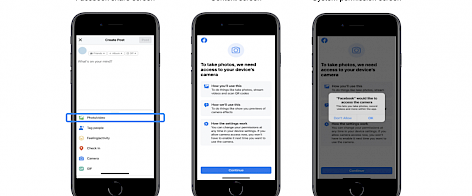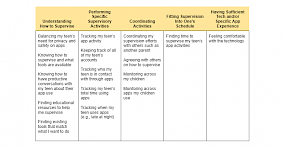Building privacy efficacy may earn trust and unlock use of AR/MR products
Product experiences that address people’s perceived privacy problems can build “privacy efficacy,” or users’ confidence in privacy. Across multiple studies, we found that respondents who had higher privacy efficacy were more likely to trust and use Augmented Reality (AR) smart glasses and Mixed Reality (MR) headsets.
We built a Trust Framework to help product developers understand how proactively designing for privacy may earn people’s trust and facilitate their use of AR/MR products.
Meenakshi Menon, Ph.D, Stacy Blasiola, Ph.D, Chelsea Cormier McSwiggin, Ph.D, Fernanda Herrera, Ph.D, Kasey Jones, Sarah Pearman, Jocelyn Rosenberg, Ph.D, Danny Ullman, Ph.D & Breian Witts
Read MoreBoosting privacy confidence with context screens

Arezoo (Auriana) Talbott UX Researcher, Meta
Read More